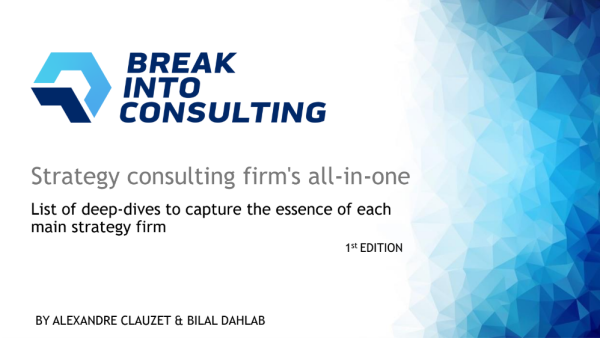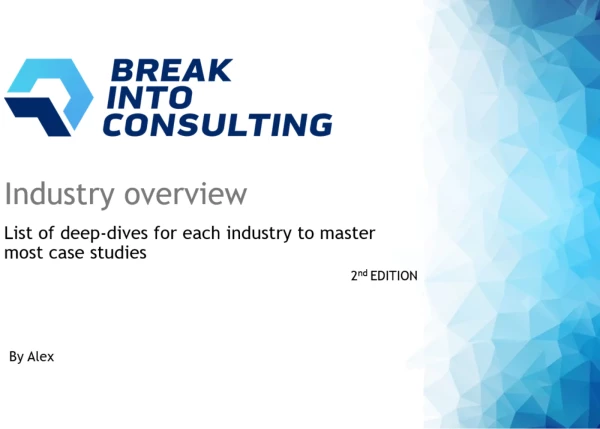Dear all, I would like to seek for advice on how to ask "good questions" during interview. Sometimes interviewers' will ask me questions like "what do you think", so I believe it's some questions are too "general". Here is my questions:
1. Is it okay to ask during the clarification part: (1) Is this internal or external problem? (2) Is this a cost issue or revenue issue?
2. Today I did a case discussing about why visitors to a church has been dropping. I used an "external-internal" issue tree to solve the case, and eventually found out that the wedding event taking place is reducing, which is causing the problem. At this point, how should I proceed the case? Can I simply ask "WHY" is the wedding events reducing? Or I should at least brainstorm several possibilities, and ask which one is correct? Or, I should have another structure to discuss the possible internal / external issue that is causing a drop in wedding events?
3. Following the above case, the answer was males have been reducing - due to a war. Again, how should I ask the question to explore the reason that males have been reducing? It's nearly impossible to think of this reason...
Thank you so much.






